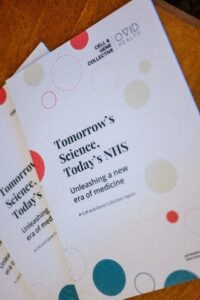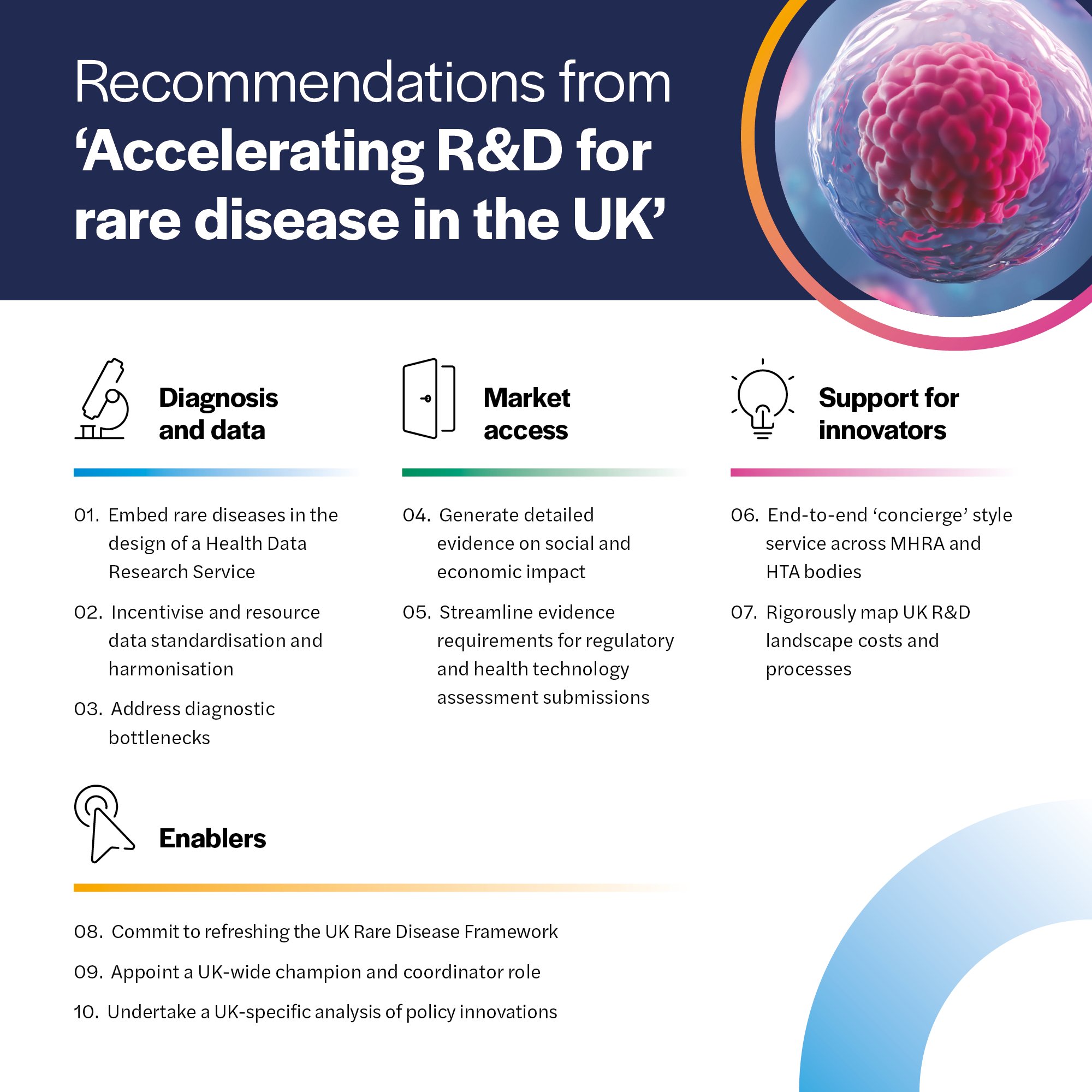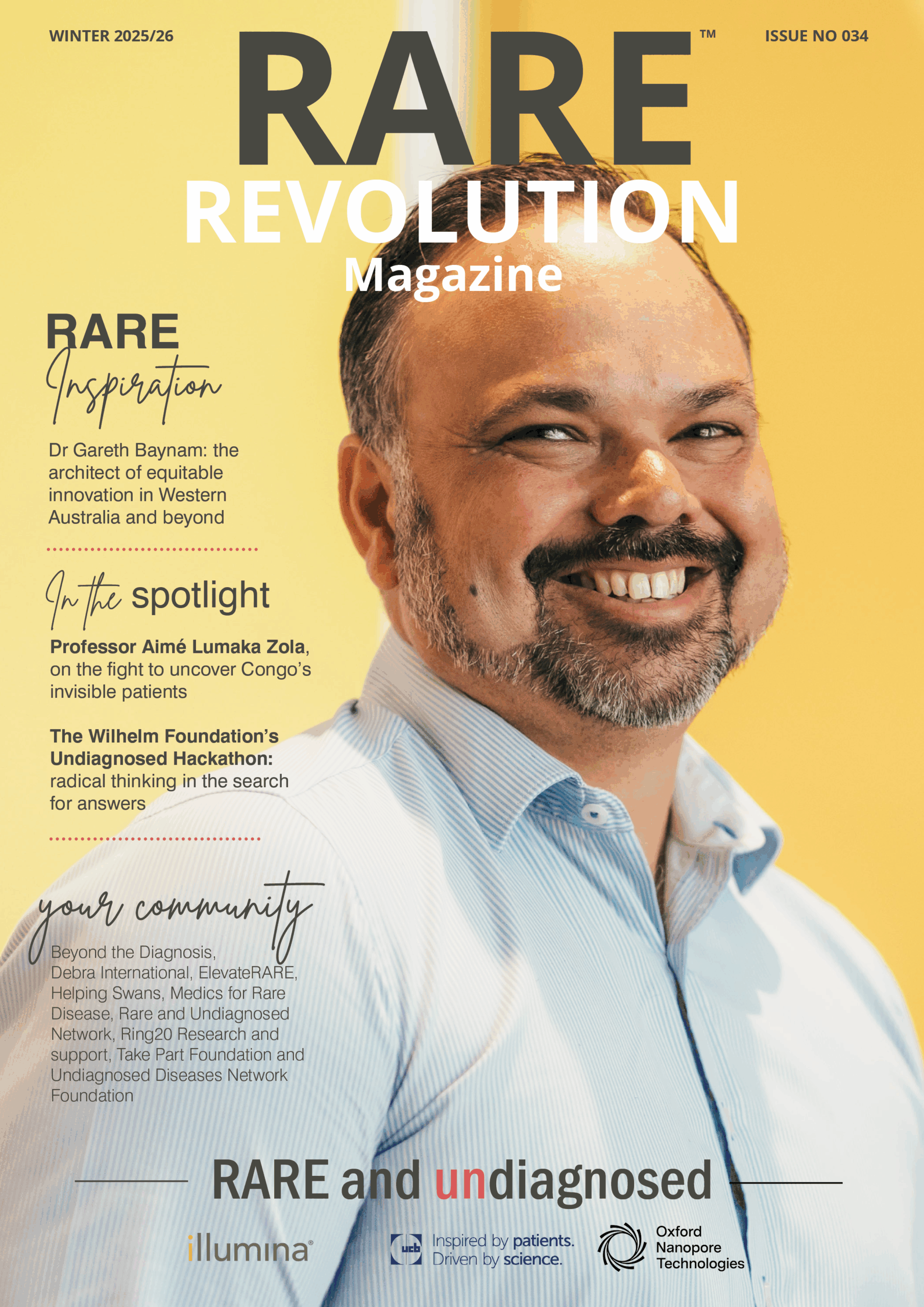Reasons to be cheerful?
by Nicola Redfern, NJ Redfern Ltd

Since writing last time it feels, as usual, that lots has been going on in the rare disease world and I have read articles here, on LinkedIn and through other outlets sharing equal amounts of joy and concern. What we still all know is that the approx. 3.5 million people in the UK designated as having a rare condition, and many others still fighting for a clear diagnosis, face struggles. We’ve not yet got the total model of care right. The UK is not alone as other countries face similar challenges.
On a positive note, we’ve read in the news that Vertex reported positive results for their cell therapy for Type 1 diabetes at the recent American Diabetes Association Conference1 and has received fast track designation from the FDA and an innovation passport here from the MHRA and an announcement came that a haemophilia B patient has received a gene therapy in England for the first time2. Doctors at Great Ormond Street delivered a gene therapy infused directly into the brain to restore dopamine production, positively impacting the life of the three-year-old girl featured3; and we also learned that a teenager in Norfolk was the first patient in Europe to receive a newly licensed treatment for an inherited disorder activated PI3-kinase delta syndrome, which is normally life threatening4.
There are reasons to feel positive but other areas of concern are also being highlighted, and some rare disease innovations have failed to get through the NICE process. So this month I thought I’d cover two relevant reports launched respectively in June and July that might help give some structure to discussions and help us all jointly focus on areas where improvements could be impactful.


On the 18th of June the Cell and Gene Collective, with Ovid Health, launched a new report “Tomorrows Science, Todays NHS: unleashing a new era of medicine”5. If you’ve read my articles before you know that access to this type of innovation is close to my heart. I feel passionately that if the science now enables us to potentially cure, but at minimum significantly improve quality of life and improve life expectancy, and the regulators grant them licenses, then these treatment options need ethically to become a choice that’s discussed routinely in clinical practice across the globe. Sadly, we know that’s not yet the case.
Industry and health systems alike are still finding their feet, looking at how they optimise and can deliver access at an affordable but also profitable price. The report calls for more trials, change in the way Health Technology Assessments (HTAs) are conducted here in the UK and asks that innovative reimbursement mechanisms are enabled to help find sustainable ways to fund. It also calls for accelerated access for patients and future proofing of the system, highly pertinent with many more products are on the horizon. It quotes 482 cell and gene therapies (CGTs) in development and claims 10,000 individuals could be benefitting from this approach by 2028. In regard to planning the staffing, service, and required infrastructure for this, three years is not long to be ready. To aid this infrastructure and capacity building, they call for a ministerial appointment to specifically oversee and facilitate. There are 25 recommendations in total so do please have a read. Hopefully some of them are tangible enough that different organisations and decision makers can lift and action.
Almost in parallel Life Arc launched a report on July 7th “Accelerating R&D for rare disease in the UK: an opportunity to change millions of lives6”, This looks more broadly than just cell and gene therapies but equally focusses on ensuring new innovations reach those who might benefit.


The 10 key recommendations here have some synergy with what’s being called for in previously outlined, Tomorrows Science report. The ask that someone at senior level is given oversite and responsibility is a common theme, as are the asks around better trial and market access.
These reports have landed alongside the chancellors spending review7, announcements on DNA being mapped for every newborn baby by 2030 and the NHS 10year plan8.
Dr Martin Turner, the BioIndustry Association’s (BIA) director of policy and external affairs recently welcomed the multibillion-pound investment into research and development, manufacturing in the sector and the commitment to support innovative businesses.
We’ve also seen the Department of Health (DoH) announce increased access to trials via the NHS App and a reduction in trial set up time, to pull out a few areas which could practically help. This move, alongside other changes have been welcomed by the Welcome Trust, trialist, Royal Colleges and patient groups alike. Many actions building on the Oshaughnessy report we saw in 20239.
You need to know what condition you have though to sign up for a trial and many are targeting adults only. How all this translates in practice for many families has yet to be seen. Genetic Alliance has welcomed many aspects of the 10 year plan10 but there appears to be consensus that we need action now and can’t afford to wait until some of the initiatives kick in. Plus, the current rare disease commitments and framework ‘run out’. And commitments need to be renewed in all four nations. Ensuring a focus remains on rare is critical. With everything else going on it could be lost in wider noise and activity.
From an industry perspective the gap that still appears to exist between the companies (pharma and biotech) and government is concerning. A lack of resolution/solutions [at the point of writing this] on the Voluntary Scheme rings alarm bells and we know is discouraging investment here currently.
We have so much as a country to offer in terms of science, clinical expertise, high quality delivery and a cohesive active community across the many different conditions—it would be devastating if the above aspirations for improvements don’t play out in practice and we can’t realise the benefits for millions of lives moving forward.
If I or my colleagues can help you navigate these opportunities and challenges within your own organisation please do not hesitate to reach out.
About Nicola
Nicola set up NJ Redfern Ltd in 2022 to enable her to consult, coach and collaborate with other organisations, following her experience at bluebird bio. She has a long history in rare disease and oncology within the pharmaceutical and biotech industry and has worked closely with the Cell and Gene Therapy Catapult and the ATTC network in the UK. She is a member of the International Society of Cell and Gene therapy (ISCT) ethics sub group, contributes to the UK ATMP Engage community and projects, and speaks at various congresses and webinars about the challenges of bringing cell and gene therapies to market.
Nicola is committed to and motivated by ensuring people living with significant health challenges have a choice and are able to access transformative treatment options quickly once science and innovation reaches a point to positively impact their lives. She also believes the UK will be stronger if these new treatments are supported and embraced holistically across our ecosystem.
She can be contacted at nickiredfern@gmail.com or connect with her on LinkedIn.
References
[4] https://www.bbc.co.uk/news/articles/c07dzrx02e0o
[5] https://ovidhealth.com/pdf/Tomorrow-Science-Today-NHS-CGC-Report.pdf
[7] https://www.gov.uk/government/collections/spending-review-2025
[8] https://www.gov.uk/government/publications/10-year-health-plan-for-england-fit-for-the-future
[10] https://geneticalliance.org.uk/news/nhs-10-year-plan-2/



